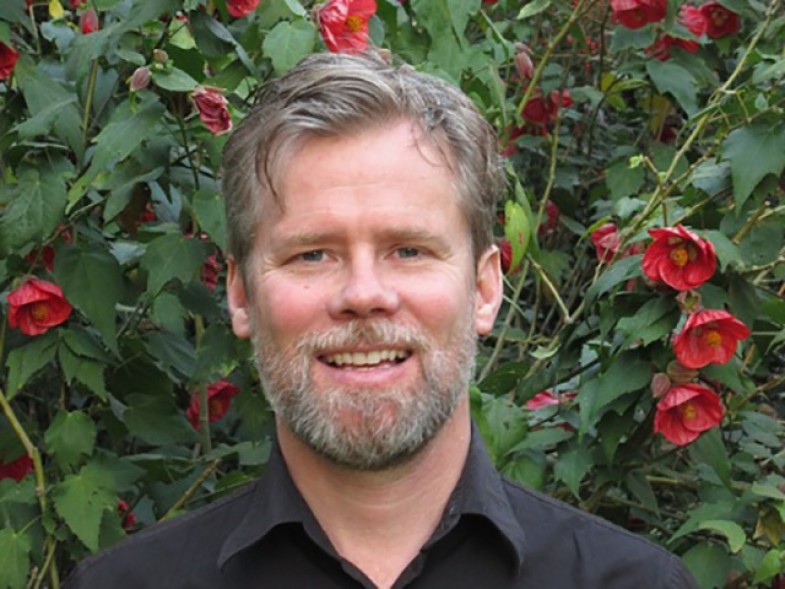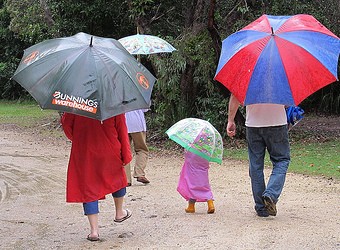Not long ago Neal Gorenflo, co-founder of Shareable--an award-winning news, action and connection hub for the sharing movement--called himself an “unlikely voice for sharing.” An epiphany in 2004 spurred him to leave his job as a corporate strategist and become a strategist for the common good. Without question, it was the right move for him. Gorenflo says his decision led him to develop a more collaborative lifestyle that’s “nothing short of magical.”
If Gorenflo’s story sounds familiar, it’s not surprising. Today we are witnessing a cultural shift driven by “people who want economic autonomy and a higher quality of life”—desires that naturally lead to higher levels of civic engagement and sharing. Even so, says Gorenflo, the challenge lies in showing everyday people the promise of the sharing economy for freedom, prosperity, sustainability, and equity.
Inspired by his personal transformation and deep involvement in the sharing transformation, I asked Gorenflo how he defines the sharing economy today, what sets it apart from the market, and why he believes “prosperity through sharing” will become the defining cultural narrative of our time.
Jessica Conrad: While developing the plan for Shareable in 2009, you discovered a diverse collection of innovations that shared a goal “to democratize the creation, access to, and management of vital resources.” The movement is now widely known as the sharing economy. How do you define it today?
Neal Gorenflo: At Shareable, we define the sharing economy very broadly. Through technology, new business models, and community in solidarity, there is a significant opportunity to democratize the economy. People who want economic autonomy, a higher quality of life, and more control over their lives—which naturally leads to more civic engagement, political awareness, and action—are driving the movement.
Jessica Conrad: Has the sharing economy always been a part of human life? Why are we talking more about it now?
Neal Gorenflo: Sharing is probably as old as we are. From tribes in the Amazon rainforest to modern communities around the globe, sharing is prevalent and has been around forever.
What is new, however, is our blindness to sharing, or the belief that the market makes up the entirety of the economy in the modern world. The market is in fact completely dependent on the commons—what we share together—and wouldn’t exist without them. The commons is the source of our wealth in both the new and old sense of the word. The new meaning has a financial connotation while the old is about health and well-being.
The mystery is how we lost our way. That’s a longer story, but if you scratch beneath the surface, the value of all that we share is obvious. Think about the way cities operate: They thrive because they’re designed for sharing everything from roads to public space to culture to ideas. Cities are a kind of miracle because they create dramatically higher productivity and lower resource use per capita than rural and suburban areas. This is largely because of how much is shared in cities. This suggests where we should focus our efforts to create a better future.
Jessica Conrad: How is the sharing economy similar to and different from the market?
Neal Gorenflo: The sharing economy is different from the market in several important ways. First, our current global economy is incredibly destructive and wasteful; it’s literally a death machine. We’re currently using 1.4 times more resources each year than the earth can replace. We’re eating into our natural capital. At the same time, a billion live in extreme poverty. The problem isn’t that there’s too little resources, it’s that they’re not distributed evenly. The existing market economy is simply not doing the job of allocating scarce resources. We’re burning up the planet and not taking care of everyone.
Another big difference is the kind of social organization each economy supports. In a market society, most people pursue their goals individually, and, as a result, there’s a significant amount of isolation and alienation. There’s also a decreased feeling of solidarity, cooperation, collectivity, and civic imagination. This defies the reality that our fates are tied, a reality that is central to the commons and sharing economy.
I’d also like to point out just how different the two systems feel to the individual. I grew up in an American, middle class suburban family during a historic, never-seen-before orgy of consumption. This lifestyle destroyed my family and many others around us. It was completely alienating. We never wanted for a meal or bike or car or roof over our heads, but even so, there was an epidemic of loneliness, depression, and addiction all around me.
Things just didn’t feel right to me personally. I felt disempowered, disconnected, and didn’t seem to have a voice at school, work, or in my community. The mainstream media exacerbated my feelings because it showed me what I didn’t have or told me that I had the wrong body size, hair color, and personality and needed X, Y, and Z to become the right kind of person.
Completely opposite influences helped me make the shift to a sharing lifestyle, including meeting people as equals with a spirit of generosity and acceptance, being concerned about others and believing in them, trying to make decisions together that benefit everyone, contributing to my community, and being affirmed by peers and affirming them in return. These are the kinds of things that happen in my San Francisco community. This saved my life.
Jessica Conrad: Does the sharing economy benefit the commons?
Neal Gorenflo: Yes, absolutely. The new market-based forms of sharing create powerful positive externalities that we can all benefit from. Take car sharing for example. The Transportation Sustainability Research Center found that one shared car replaces up to 13 owned cars, and that 50% of new members join to get access to a car that didn’t already have access. A separate report estimates that every privately owned car taken out of the system funnels about $8,000 back into the local economy annually. So if we reduced the number of privately owned cars in San Francisco by half to around 250,0000, it would keep an estimated $2 billion in the local economy annually. That’s huge.
This kind of innovation significantly reduces resource consumption, increases access to those same resources, and boosts the local economy – all at the same time. I think we need to recognize the interplay between the commons and the market. It’s a mistake to draw hard lines based on ideology. At Shareable, we judge solutions by their impact and long-term viability, not by ideology.
Jessica Conrad: Do you think some of the market-based sharing models are still nimble enough to adopt frameworks that enable wider participation in the sharing economy?
Neal Gorenflo: Something that people often fail to take into account is the research on how and why innovations get adopted. It’s well-documented that the pioneers and the early adopters of any innovation are usually affluent. They have the means to experiment and the luxury to act on their values, whereas other communities may not have the time or means to try something new. Instead, they have to put food on the table, and that can be a daily struggle.
Time will tell if these venture capital backed platforms help the disadvantaged. One important reason they may fail to do this is that most of them are not social enterprises (CouchSurfing is a B-Corp). Their primary purpose is to generate returns for investors, and I think this can make all the difference.
Jessica Conrad: Is that the sharing economy’s greatest challenge?
Neal Gorenflo: I think our biggest challenge lies in getting everyday people excited about what the sharing economy has to offer. There’s an opportunity for freedom, prosperity, sustainability, and equity. We’re in a transformational moment, and unless citizens wake up and shape it for their benefit, the powers that already shape the economy will benefit most.
Another related challenge is how we think about sharing. First, we’ve infantilized it. We think of it as something that happens only in Kindergarten. We think it’s purely altruistic. We also demonize sharing by relating it to socialism, but you can share in a market system or through voluntary systems like cooperatives, credit unions, or timebanks.
We need to recognize sharing for what it is, as a pragmatic solution to many everyday needs, as well for critical social challenges like climate change and wealth inequality.
Sharing is not the answer to everything just like the market’s not the answer to everything. But sharing is an option we should explore more thoroughly because of its many benefits.
Jessica Conrad: You’ve suggested that “prosperity through sharing” is a new cultural narrative of our time. What might that mean for the average citizen 20 to 30 years down the road?
Neal Gorenflo: At Shareable, we don’t like to make predictions; we like to offer people a choice. I believe that people determine their future and that the sharing economy presents a tremendous opportunity. What do we want it to do for us? Once we figure that out, we can create the kind of lives and society we want. I think sharing will be a big part of the future.
Jessica Conrad: What resources do you suggest for people interested in getting involved with the sharing movement?
Neal Gorenflo: If you want more sharing in your life, subscribe to our newsletter here for a weekly jolt of tips and inspiration, get our guide to sharing developed with The Center for a New American Dream here, and check out our sharing how-to library here. I’d also recommend On the Commons and the new book Sharing is Good.
If you want to get more sharing in your community, I’d join our Sharing Cities Network to connect to local sharing activists near you or around the world. And get our sharing economy policy guide, Policy for Shareable Cities. I also recommend Jay Walljasper’s book All That We Share for its many tangible examples of sharing at the neighborhood and city scale.
Jessica Conrad: You left your previous career as a corporate strategist “to pursue a life of purpose, great relationships, and real community.” Looking back, would you say your time at Shareable and experience as a practitioner of the sharing economy has fulfilled that goal?
Neal Gorenflo: Yeah, it saved my life. That’s the bottom line. Before I made my lifestyle and career change, I was lost. I was really lost—and disempowered. Maybe I was a success on paper, but psychologically I was not. When I gave it all up for sharing, I made a 180-degree change. I became more collaborative, social, and started working on things that had meaning for me.
Now I have a completely different life, and it’s nothing short of magical in comparison to my old way of being in the world. My friends bring me incredible opportunities, sometimes they’re so good they outstrip my imagination. In fact, I have to be careful about setting goals because they can actually create unnecessary limits. This is what happens when you find and follow your purpose, and do so in community.
The same magic exists in the cultural shift we’re witnessing today. Instead of establishing a pecking order based on how much we earn or buy, we’re beginning to relate to one another based on our purpose or passions. As a result, the focus becomes what we can create together—and that’s a beautiful way to relate. It offers limitless possibility.







